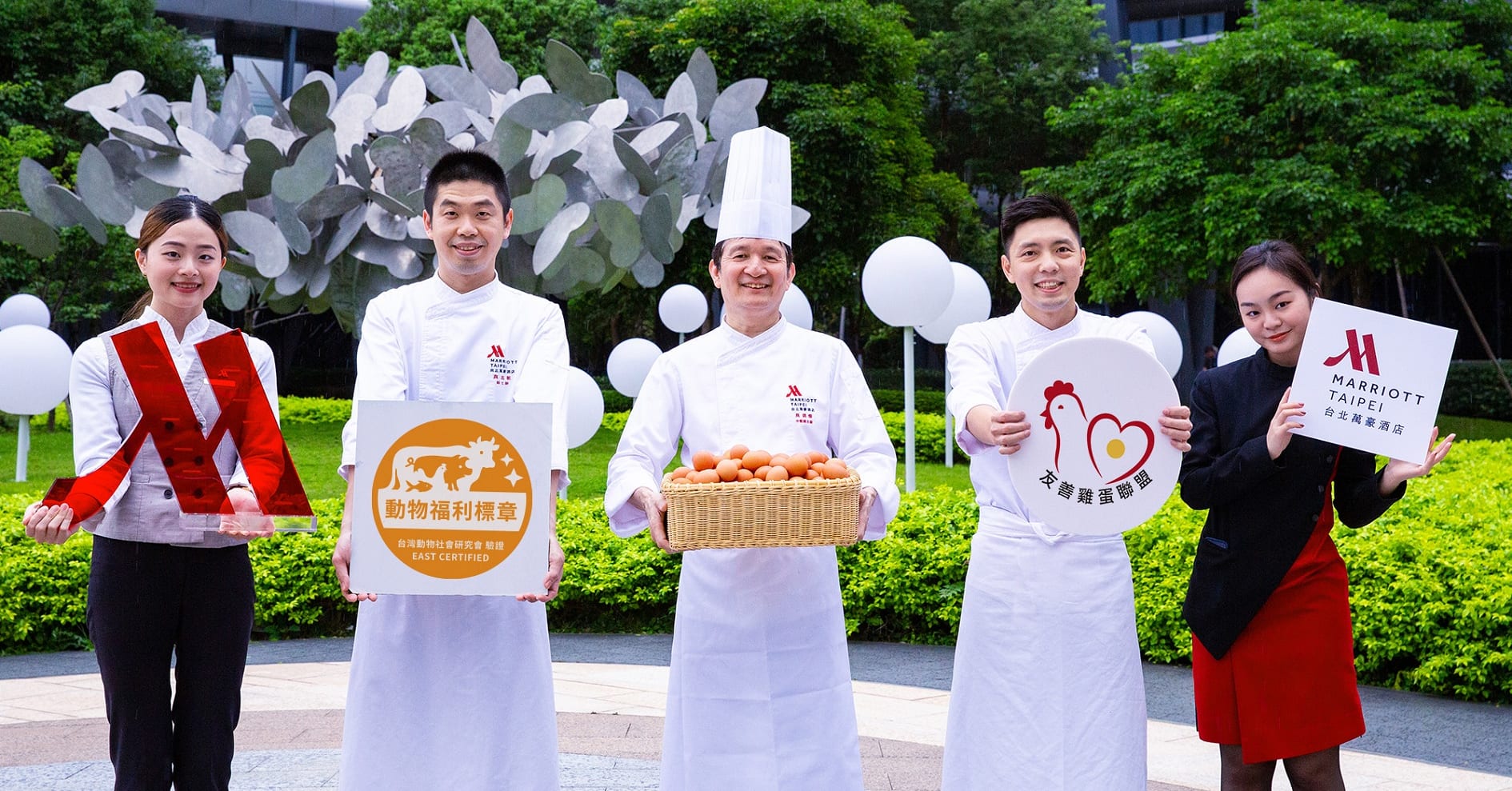We are delighted to share some updates for the hospitality sector in Taiwan.
Firstly, the Silks Hotel Group – Taiwan's largest publicly-listed hotel group – has announced it will go cage-free by 2030, with the flagship Regent Taipei to transition by 2026.
Regent Taipei's specialty restaurants – the Gallery Lounge and Robin’s Steakhouse and Teppanyaki – have already transitioned to free range eggs sourced from New Dawn Care Farm, where hens are cared for by employees living with physical or intellectual disabilities. The policy was announced at a joint press conference following ongoing negotiations since December 2023.
Secondly, Taipei Marriott Hotel announced that it is the first hotel in Taiwan to exclusively source cage-free eggs and milk awarded EAST Certified certification.
The 506-room hotel is home to nine function and banquet venues, six restaurants, and an employee restaurant, which together source more than 600,000 eggs and 50,000 liters of milk per year.
EAST Certified is a certification scheme that aims to give animals a better life. Applicants must pass strict animal welfare and Chain of Custody audits to earn EAST Certified certification.


